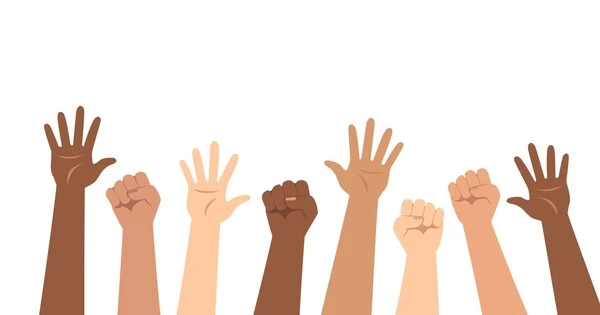Racial discrimination is the unfair and unjust treatment of individuals or groups based on their race or ethnicity. It is defined as any form of discrimination against an individual based on their skin color, race, or ethnic origin. It is a type of prejudice that can manifest itself in a variety of ways, resulting in unequal opportunities, social exclusion, and differential treatment in areas such as education, employment, housing, and law enforcement. Individuals can discriminate against members of a specific group by refusing to do business with, socialize with, or share resources with them.
Racial discrimination is a serious human rights issue and a significant problem in many societies around the world. It is critical to recognize that all individuals, regardless of race or ethnicity, deserve equal dignity and respect. Governments can discriminate implicitly or explicitly through policies such as racial segregation, disparate enforcement of laws, or disproportionate resource allocation. Some jurisdictions have anti-discrimination laws that prohibit the government or individuals from discriminating in various circumstances based on race (and sometimes other factors).
Affirmative action is used by some institutions and laws to try to overcome or compensate for the effects of racial discrimination. In some cases, this is simply increased recruitment of members of underrepresented groups; in others, racial quotas are in place. Opponents of strong remedies such as quotas call them reverse discrimination, in which members of a dominant or majority group face discrimination.
Various international and national laws have been enacted to combat racial discrimination, including the International Convention on the Elimination of All Forms of Racial Discrimination (ICERD) adopted by the United Nations in 1965. Additionally, many countries have established laws and policies to promote equality and protect individuals from racial discrimination.
Despite these efforts, racial discrimination persists in a variety of overt and subtle forms, negatively impacting the lives of countless individuals and communities. To combat racial discrimination, governments, institutions, communities, and individuals must work together to promote understanding, empathy, and respect for all races and ethnicities.
Education and awareness are critical in the fight against racial discrimination because they foster empathy and understanding among people from various backgrounds. Dialogue, open dialogue, and actively challenging stereotypes and prejudices can all help to build a more inclusive and equitable society.
















